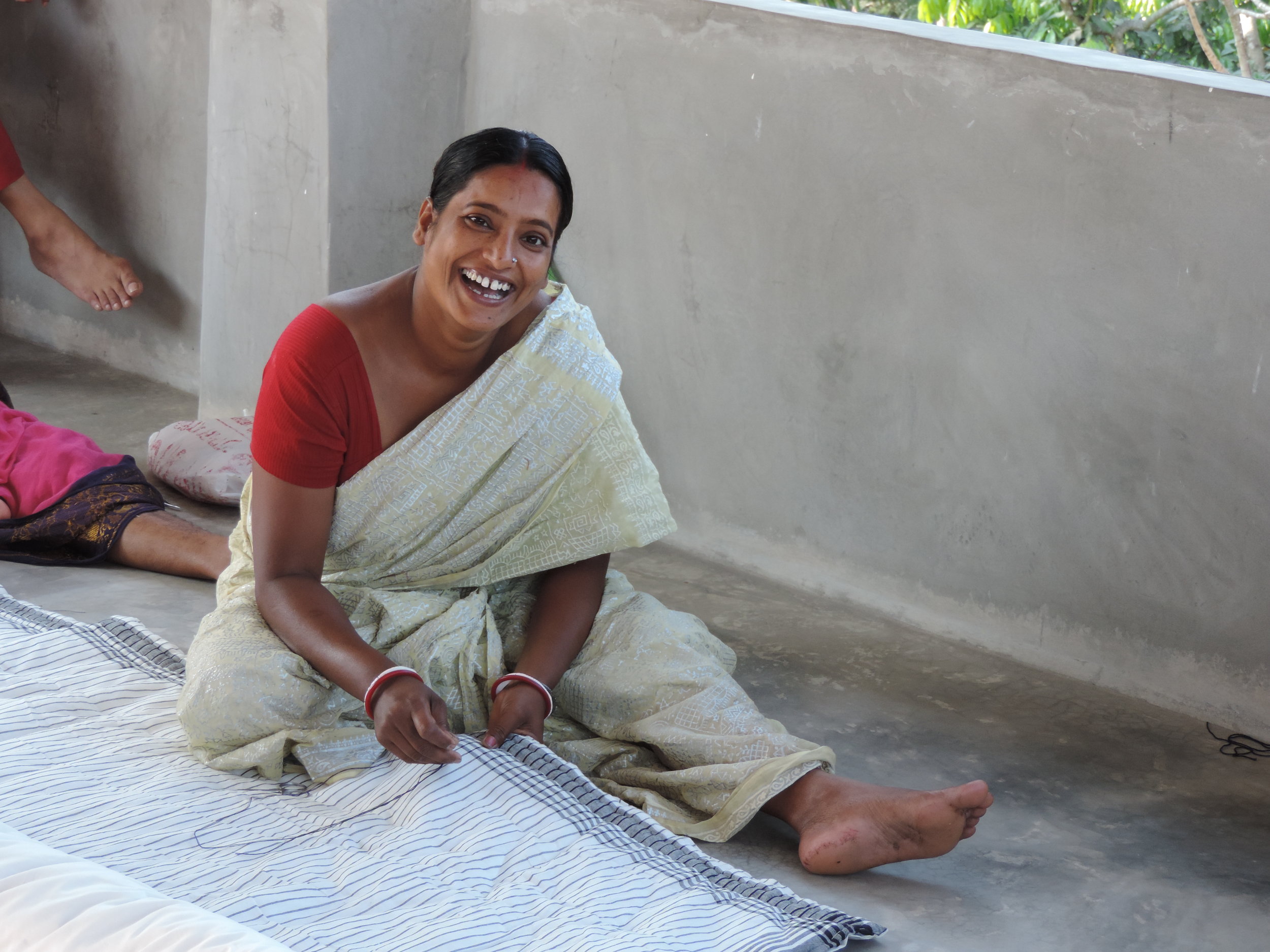Fair Trade Month:10 Reasons Why Fair Trade Changes Lives
Pushpa - weaver
It's Fair Trade Month this October. It's a time when conscious consumers and brands promote the benefits of fair trade products and fashion. If you're wondering what fair trade is - it's basically a way of doing business within a set of standards, that empowers small producers and artisans to be paid a fair wage. This enables them to work their way out of poverty and grow their businesses and livelihoods without fear of exploitation and with more of a say in the process. We think it's important to celebrate this, so here's 10 reasons why fair trade changes lives.
Breaking The Cycle of Poverty
Fair trade creates opportunities for economically disadvantaged producers. Our Kantha scarves and necklaces are crafted by marginalised women who work in women's cooperatives. This enables them to work in supportive groups, earn a sustainable income and invest in the education and health of their families.
Transparency
Transparency is important throughout the supply chain. As a retailer we are open and honest about who we work with and share the benefits and stories of those who make our clothes. In the same way, our business partners are transparent about the organisations they partner with and share relevant information with us regularly.
Fair Trade Practices
We only do business with social enterprises who have a proven record or reputation for good fair trade practices. As social businesses they do business with concern for the social, economic and environmental well-being of marginalised artisans and do not maximise profit at their expense. We ensure we maintain long lasting relationships based on trust and respect and work together to promote fair trade.
Fair Trade also recognises, promotes and protects the cultural identity and traditional skills of artisans. We see the immense value of this and ensure we partner with businesses that offer unique and beautiful textiles that we can introduce to the global market.
Fair Payment
All our artisans are paid a fair price for their work. The decisions behind the price are mutually agreed by the artisans in the cooperatives.
Forced or Child Labour
As retailers we ensure we do not work with any organisations who use child or forced labour.
Gender Equality and Women's Empowerment
With the majority of workers in the developing world being women, social change is very important to us. We hope we can use fashion as a force for empowerment for both artisans and consumers. Our artisans work within women's cooperatives, self-help groups and clusters that empower them to seek livelihood opportunities, break the cycle of poverty and gender violence, inequality and gain emotional and financial independence.
Ensuring Good Working Conditions
All our artisans work in safe and flexible working conditions enabling them to work around family commitments and responsibilities.
We Believe In Respecting The Environment
As a brand with a diverse range of handmade products, our collections are made up a variety of materials that respect the planet. This includes:
*Kantha Scarves - this zero waste range of products uses recycled sari's ensuring there is no contribution to landfill. The Kantha stitching is 100% handmade and therefore reduces energy consumption.
*Merino Wool Shawls, Scarves and Capes - Locally sourced using natural materials and dyed using chemical free dyes.
*Khadi Cotton Robes, - Handspun, handwoven Khadi Cotton made on a handloom. Uses natural dyes.
Developing Artisans
Our artisans receive training and are empowered by partner organisations to support them in developing new techniques, design interpretation and quality standardisation, They also ensure they are encouraged and supported in accessing global markets and increasing production.
Promoting Fair Trade
We endeavour to always promote the benefits of fair trade and raise awareness of issues such as slavery the plight of millions of garment factory workers in developing countries.
*Materials manufactured at the source respect the planet. Unfortunately we cannot control the carbon foot-print of shipping products from over-seas or to our customers, as this is a necessary part of our business.






